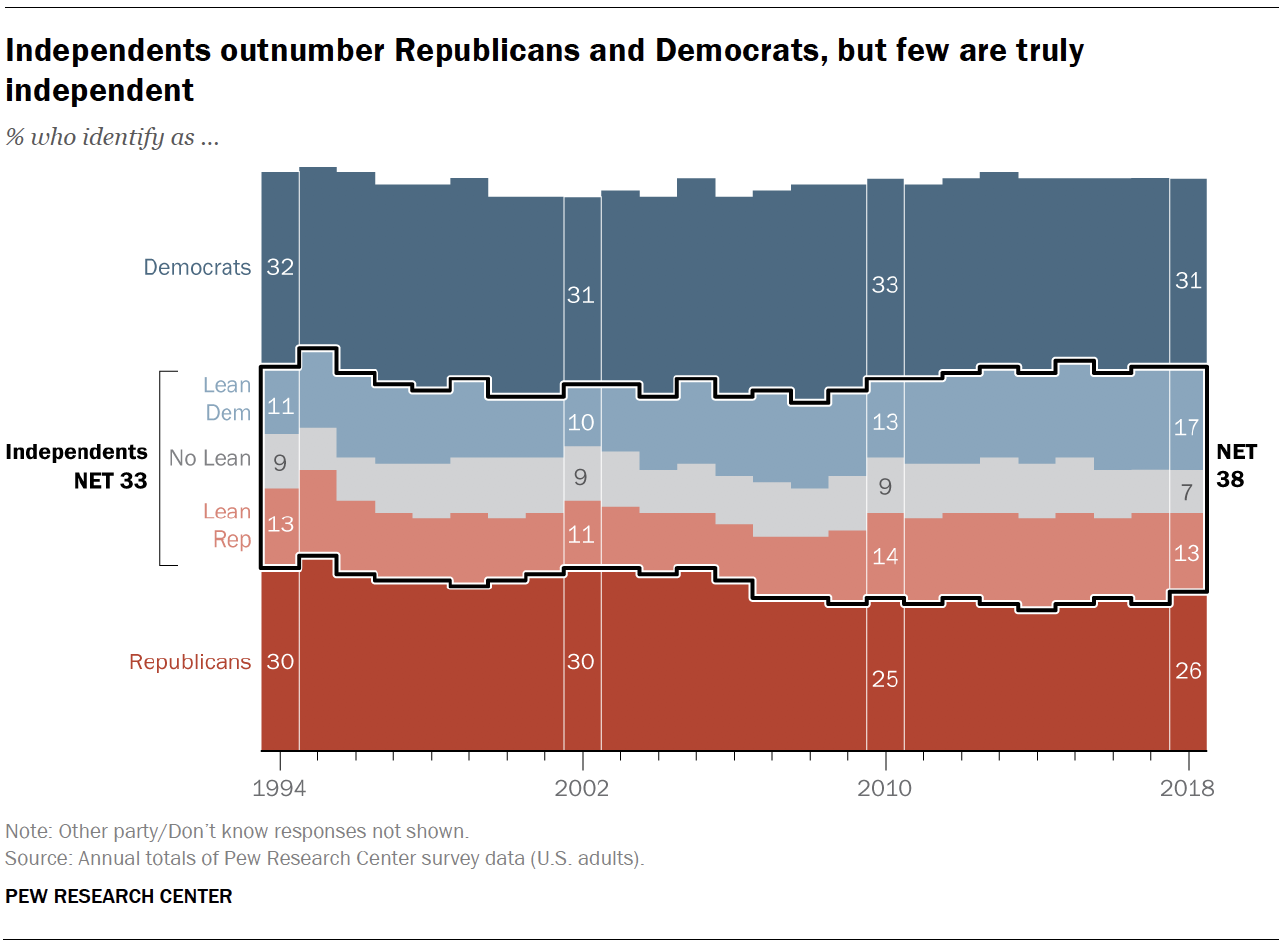All the media and political hype over the importance of “independent voters” appears to overshadow the truth about the group — less than 10 percent of Americans are truly independent.
And according to a new survey, most of them don’t register to vote and even fewer actually vote.
Instead, many of the 38 percent of Americans who describe themselves as “independent” lean toward one party or the other, according to Pew Research Center.

“Independents often are portrayed as political free agents with the potential to alleviate the nation’s rigid partisan divisions. Yet the reality is that most independents are not all that ‘independent’ politically,” said the latest Pew survey.
“And the small share of Americans who are truly independent — less than 10 percent of the public has no partisan leaning — stand out for their low level of interest in politics,” said Pew.
How low? Here’s what the survey analysis said: “Those who do not lean toward a party — a group that consistently expresses less interest in politics than partisan leaners — were less likely to say they had registered to vote and much less likely to say they voted. In fact, just a third said they voted in the midterms.”
Overall, more say they are “independent” than aligned with the parties. Pew said that 38 percent call themselves independent, 31 percent Democrats, and 26 percent Republicans.
But most independents lean politically.
Here are two key findings pulled from the report:
- “In their political attitudes and views of most issues, independents who lean toward a party are in general agreement with those who affiliate with the same party. For example, Republican-leaning independents are less supportive of Donald Trump than are Republican identifiers. Still, about 70 percent of GOP leaners approved of his job performance during his first two years in office. Democratic leaners, like Democrats, overwhelmingly disapprove of the president.”
- “Majorities of Republican and Democratic leaners have a favorable opinion of their own party, and they are almost as likely as Republican and Democratic identifiers to have an unfavorable opinion of the opposing party.”
